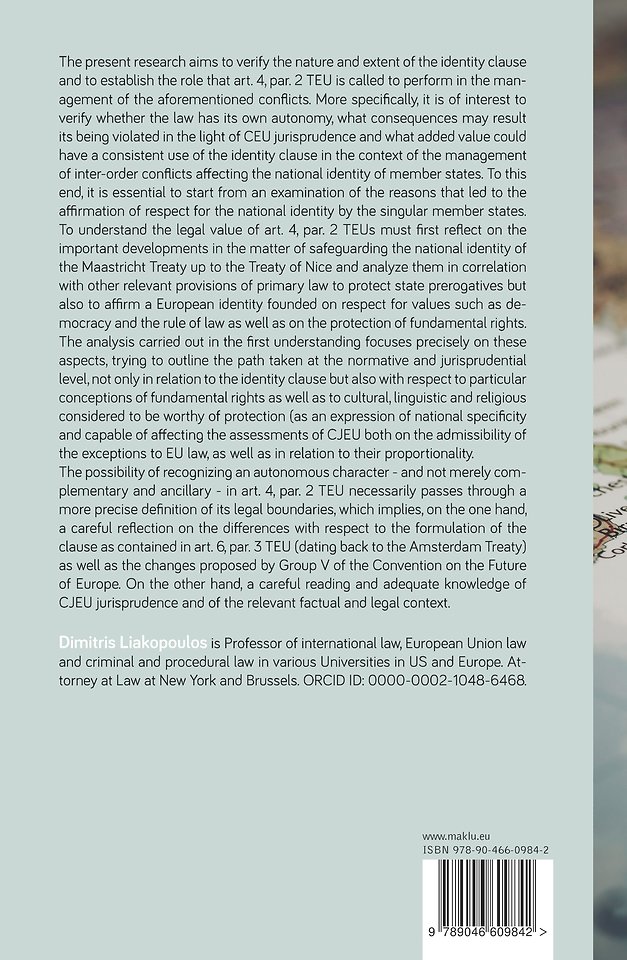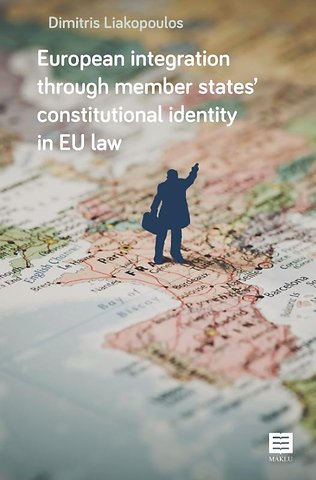



Dimitris Liakopoulos is Full Professor of European Union Law at the Fletcher School-Tufts University (MA in international law and MA of Arts in Law and diplomacy) and Full Professor of International and European Criminal and Procedural Law at De Haagse Hogeschool-The Hague.
Meer over Dimitris LiakopoulosEuropean integration through member states’ constitutional identity in EU law
Samenvatting
The present research aims to verify the nature and extent of the identity clause and to establish the role that art. 4, par. 2 TEU is called to perform in the management of the aforementioned conflicts. More specifically, it is of interest to verify whether the law has its own autonomy, what consequences may result its being violated in the light of CEU jurisprudence and what added value could have a consistent use of the identity clause in the context of the management of inter-order conflicts affecting the national identity of member states. To this end, it is essential to start from an examination of the reasons that led to the affirmation of respect for the national identity by the singular member states.
To understand the legal value of art. 4, par. 2 TEUs must first reflect on the important developments in the matter of safeguarding the national identity of the Maastricht Treaty up to the Treaty of Nice and analyze them in correlation with other relevant provisions of primary law to protect state prerogatives but also to affirm a European identity founded on respect for values such as democracy and the rule of law as well as on the protection of fundamental rights.
The analysis carried out in the first understanding focuses precisely on these aspects, trying to outline the path taken at the normative and jurisprudential level, not only in relation to the identity clause but also with respect to particular conceptions of fundamental rights as well as to cultural, linguistic and religious considered to be worthy of protection (as an expression of national specificity and capable of affecting the assessments of CJEU both on the admissibility of the exceptions to EU law, as well as in relation to their proportionality.
The possibility of recognizing an autonomous character - and not merely complementary and ancillary - in art. 4, par. 2 TEU necessarily passes through a more precise definition of its legal boundaries, which implies, on the one hand, a careful reflection on the differences with respect to the formulation of the clause as contained in art. 6, par. 3 TEU (dating back to the Amsterdam Treaty) as well as the changes proposed by Group V of the Convention on the Future of Europe. On the other hand, a careful reading and adequate knowledge of CJEU jurisprudence and of the relevant factual and legal context.





